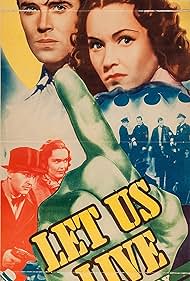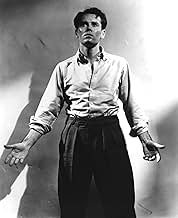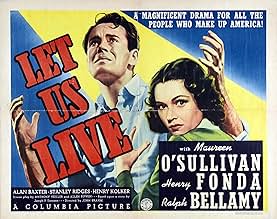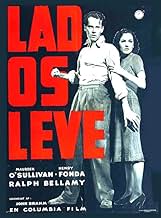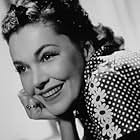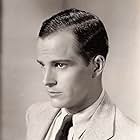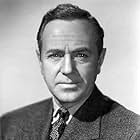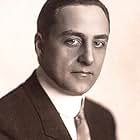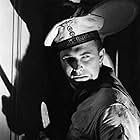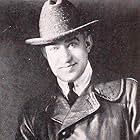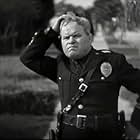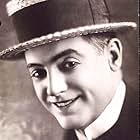This is a dark tale about two likable people. Well, three, if we count Ralph Bellamy: He is tossed at us in medias res and is not convincing as a police lieutenant.
The young lovers are Maureen O'Sullivan and Henry Fonda. He drives a cab. She works in a restaurant. He wants them to marry and is planning to buy a cab and maybe a few, to start a fleet.
Two decades before he starred in the Hitchcock film of this name, though, he is the wrong man. Not for the adoring (and lovely) O' Sullivan. No, he is erroneously arrested for a robbery -- and falsely identified by a pack of jackals who'd been at the crime scene.
One thing I noticed is the response O'Sullivan has when he takes her to look at some nice little homes. She's thrilled and grateful. It's amusing to contrast this to the scornful way the Audrey Totter character acts when Richard Basehart, her unwisely adoring husband in "Tension," takes her to see a little house in the suburbs he's picked out for them.
Lucien Ballard was a marvelous cinematographer -- here and always. This movie has the feel of German Expressionism, which includes a Weill-like musical score. But I'm not sure how much of the Expressionism is intended and how much is a matter of budget: For example, there are several scenes in which snow falls. The snow has a highly unreal look. It really LOOKS like soap flakes. And in an early scene when O'Sullivan humors a drunk at the restaurant where she works, the other diners laugh in the oddest way: We're meant to feel they take it in a goodhearted manner. But it sounds for all the world like a laugh track or the audience at a vaudeville show.
The change in Fonda is very impressive. I really empathized with his feeling at the start that everything is going his way; that the world is a wonderful place to be. If this were a musical comedy, a song to that effect would have followed. But Fonda didn't make musicals. It's pretty clear that he's going to be disabused of this notion; I've been there too. And he is indeed.
